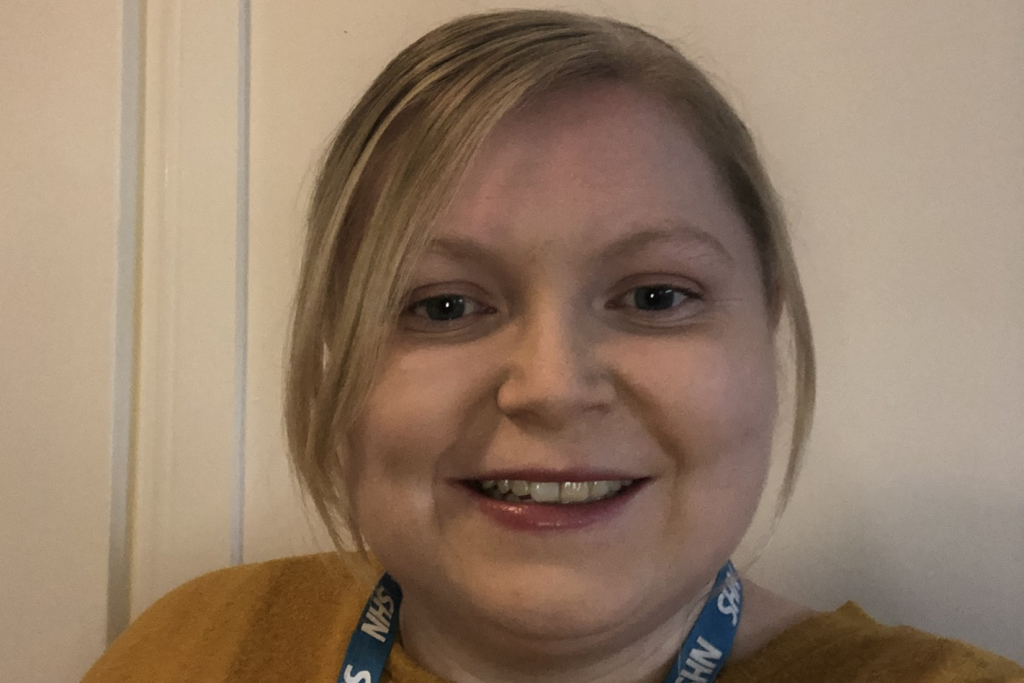18th May 2020
Debra MacDonald, a second year trainee health visitor studying MSc Advanced Nursing Practice (Health Visiting) at Robert Gordon University in Aberdeen and working for NHS Grampian in Aberdeenshire, shares her experience of training during the current COVID-19 pandemic.

Debra MacDonald, Trainee Health Visitor
During these challenging times due to the COVID-19 pandemic, the way in which the health visiting service in Scotland is delivered has changed vastly, making delivery of the universal health visiting pathway difficult. The whole service is adapting to the change as best as it can, however it can feel like we are unable to provide the level of care we have come to expect.
As a trainee health visitor who is due to qualify in the summer, the COVID-19 situation changed that plan. I was due to start my final 13-week practice placement at the beginning of April. However, due to the ongoing crisis and changes to the health visiting service, it was deemed it would be difficult to meet all the expected competencies. So, instead of completing the long-awaited final placement, it was expected that I would continue work at my base, in the trainee role supporting my health visitor colleagues and to be available from any possible redeployment. So far, for me, that redeployment call has not come – in fact, more than ever, my knowledge and skills gained so far as a trainee health visitor and from my previous experience as a children’s nurse have been required within my health visiting team base. To be able to work with health visitors through these unknown times is both a challenge and a privilege to be part of, and will be an experience I will learn from and use in my future practice as a health visitor.
I have advanced many skills during this time and have adapted, like my colleagues, to provide families with support as best as we can via both telephone contact and Near Me video conferencing. My knowledge of the National practice model (GIRFEC) that I gained in both my nursing practice and now trainee health visitor practice has been put to the test by the new way of working. Having reduced our home visiting service to just a few limited key times has been the greatest challenge. How do you fully know what a mother is saying on the telephone is truthful or just what they think we want to hear? Being face to face with families is the best way to build relationships and be able to fully assess their mental wellbeing. Not seeing families face to face means we cannot read any nonverbal communication cues such as body language, assess home conditions, observe the attachment of a mother and their child, and sadly miss opportunities to spot potential domestic abuse victims. This has been to me the most challenging aspect of the service we are currently delivering along with caring for our vulnerable children from a distance.
Health visiting within Scotland is adapting as best as it can during this time. However, I fear the opportunity to support and build the relationships we once had with families is going to take some time to recover. Spending that face to face time with families is vital in gaining trusting relationships.

